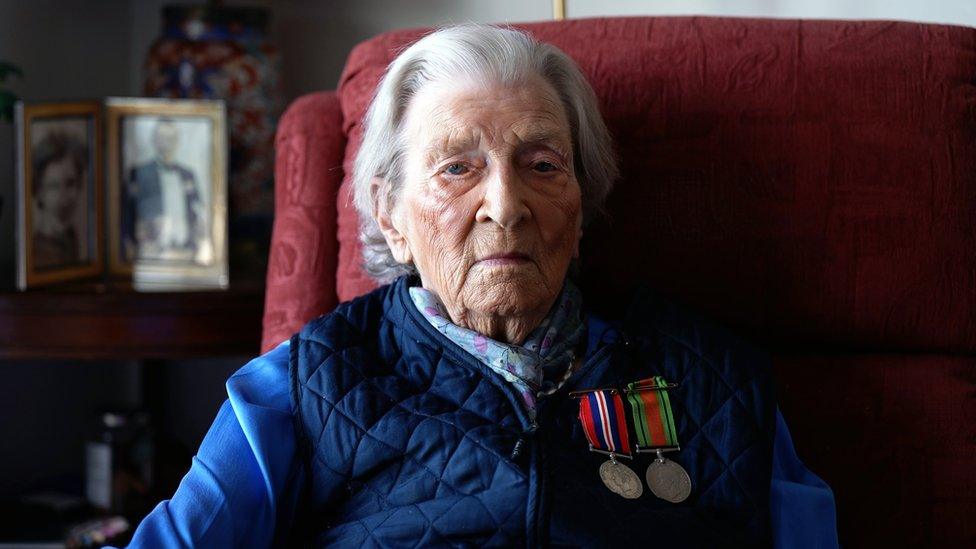Birmingham heritage walking tour honours black veterans
- Published
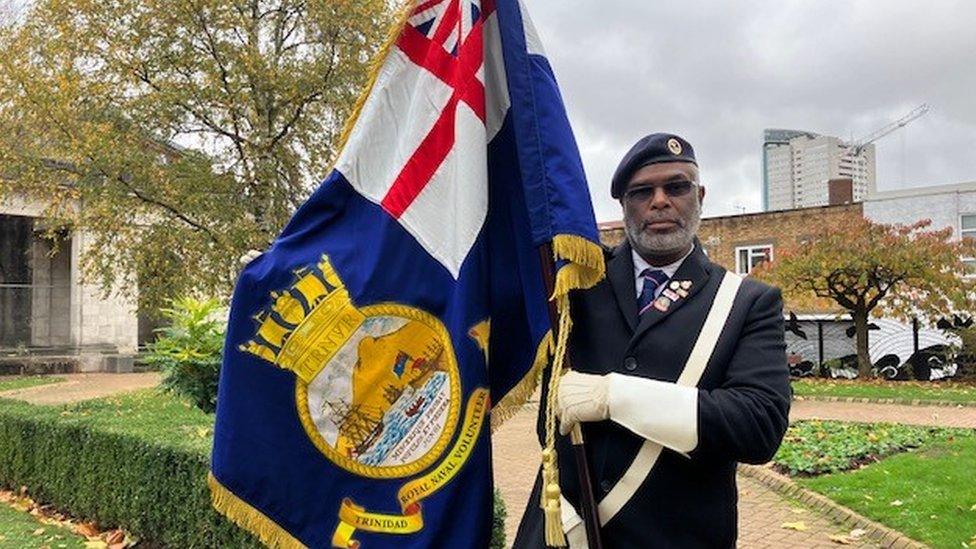
Veteran Paul Dexter will carry the West Indian Flag to honour his fellow service men and women at the Remembrance Day parade
The contributions of Commonwealth World War Two veterans are being highlighted in a series of walks.
Guided tours by Black Heritage Walks explore communities' connections with parts of the West Midlands.
As the nation marks Armistice Day, organiser Garry Stewart said the stories of black servicemen and woman were often ignored.
He said while the poppy is intended to represent everyone, "that's not the feeling within the community".
During a Remembrance Sunday parade, Paul Dexter, 58, a Jamaican veteran, who served Britain between 1981-83 during the Falkland's War, will carry a West Indian flag to honour his fellow servicemen and women.
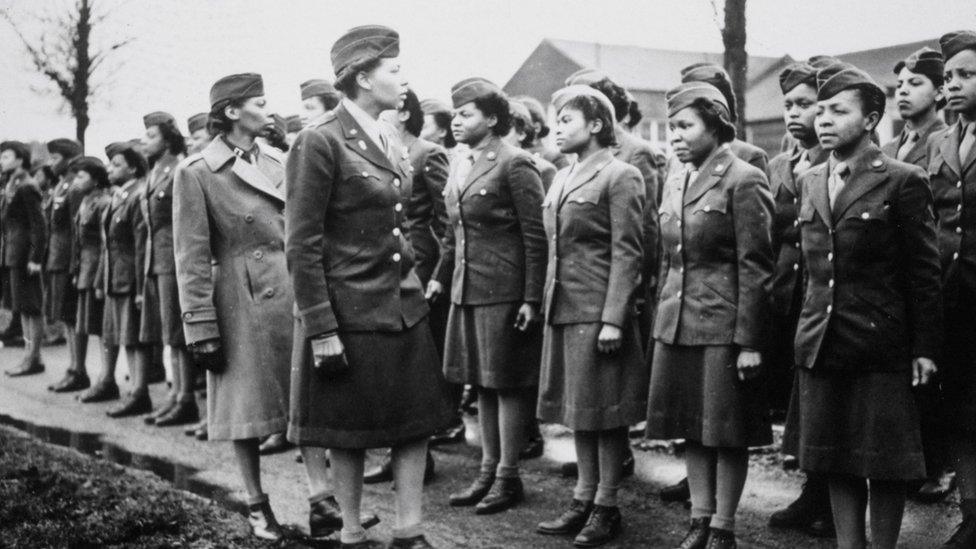
Members of the 6888th Battalion were temporarily posted in Birmingham to clear backlogged mail
Along the route of one of the guided tours organised by Black Heritage Walks, is a plaque that shines a light on the contributions of the 6888th Battalion.
Known as the Six Triple Eight, it was an all-black, all-female battalion in the US Army which was sent to Birmingham in 1945 to organise 17 million unsorted mail items.
The plaque was established in 2019 by the US ambassador and can be found outside King Edward's School in Edgbaston.
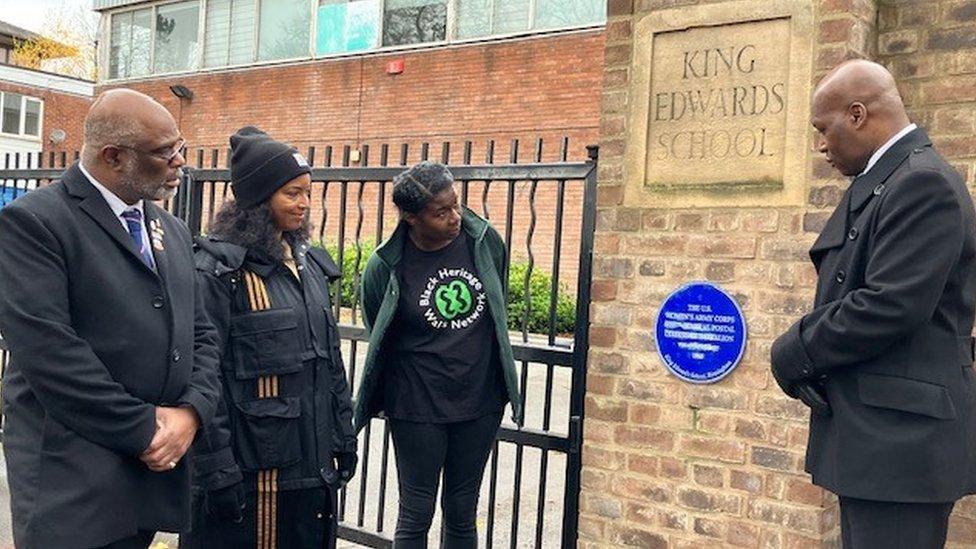
A plaque to honour the contributions of black women who served in the 6888th Battalion has been placed at the King Edwards School in Birmingham
Marcia Dunkley, executive researcher for Black Heritage Walks, said: "As black females, they did high ranking strategic systems despite being told they shouldn't really be part of the war."
"This is local history, which needs to be internationally known."

Follow BBC West Midlands on Facebook, external, Twitter, external and Instagram, external. Send your story ideas to: newsonline.westmidlands@bbc.co.uk, external
Related topics
- Published11 November 2022
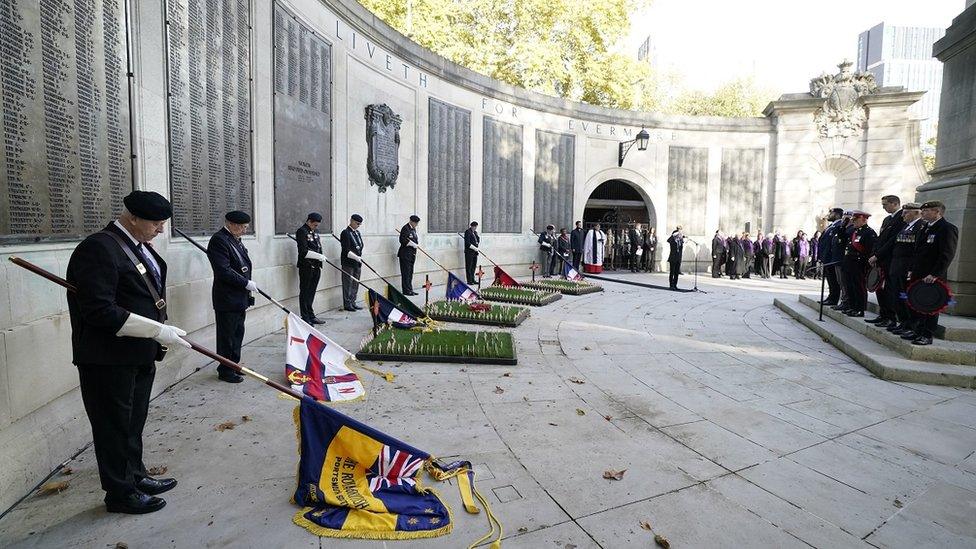
- Published10 November 2022
